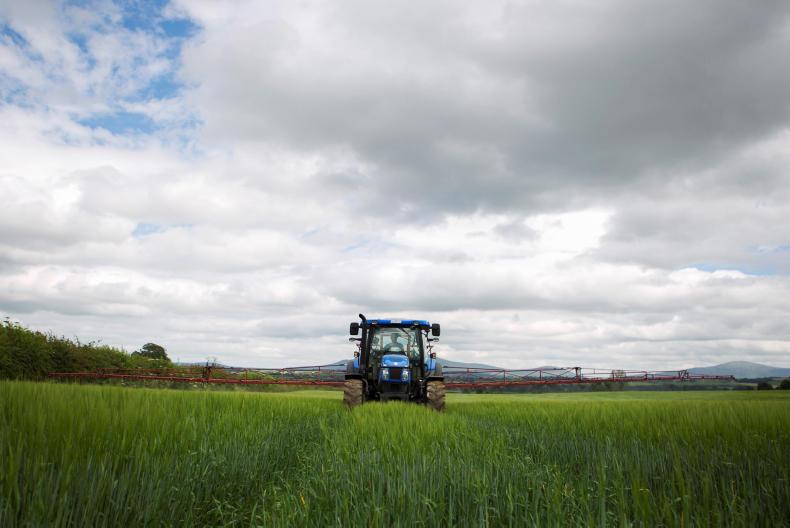The development of glyphosate transformed cereal production and banning it would be "Armageddon" for cereal production, IFA grain chair Liam Dunne has warned.
Glyphosate is the main ingredient in Monsanto's RoundUp product, used by many farmers across the EU.
“Farmers that are using glyphosate are trained in how to use it. There isn’t an issue there.
"If glyphosate is at risk [of being banned], then food production is at risk in the EU.
“It would put us back into the 1970s. If it were banned we would have to import a massive amount of food outside of the EU.”
“The development of glyphosate transformed cereal production.”
Science
Meanwhile, John Keogh, CEO of the Animal and Plant Health Association (APHA) has said that it expects glyphosate to be re-registered for 15 years, in line with a normal review period.
"The European Commission requested the European Chemicals Association (ECHA) to review the classification of glyphosate and pending this review they temporarily registered it for 18 months."
This registration ends in December of this year. Since granting the temporary registration, the ECHA has concluded its opinion on glyphosate – that there is no scientific evidence to suggest it should be re-classified as a carcinogen.
Keogh told the Irish Farmers Journal that given the ECHA conclusion, there would appear to be no scientific basis to propose anything other than a 15-year registration.
Backlash against glyphosate
While farmers and plant protection organisations are in favour of keeping glyphosate as an active herbicide ingredient, there is a big backlash in Ireland and at EU level against it.
A 2012 study on a review of surface water monitoring results in EU member states, along with Norway and Switzerland, found that of 75,000 surface water samples across 4,000 sites (from 1993 to 2011), glyphosate was detected in 33% of samples.
Of this number, 23% of samples were above 0.1µg/l (micrograms per litre).
The maximum concentrations of glyphosate acid found in surface water reached from 1.3 to 370µg/L. The highest glyphosate values in surface water were detected in Sweden (370 µg/L), Ireland (186 µg/L) and Belgium (139 µg/L).
European Citizens Initiative
Now, Irish campaign group Uplift is asking Irish people to join the global efforts to ban glyphosate and sign a European Citizens Initiative to have the herbicide ingredient banned in the EU.
The initiative had more than 693,000 signatures at the latest count, with a target of one million.
The signatures must come from at least seven member states. Each member state has to have a certain number of signatures in order to meet the threshold. Ireland needs 9,000 signatures.
If this threshold (one million signatures) is met, the Commission must consider the legislative proposal, but it is not obliged to follow it. It then has three months to give an explanation as to its decision on the initiative.
Uplift executive director Siobhan O'Donoghue has said that glyphosate is causing untold damage to our health, environment, and wildlife including bees.
“Uplift members refuse to stand by and let companies such as Monsanto continue to control government policy and thinking.
“We have a chance to finally get glyphosate banned at EU level and Uplift members are stepping up in their thousands to make this happen.”






 This is a subscriber-only article
This is a subscriber-only article










SHARING OPTIONS: